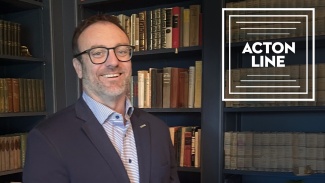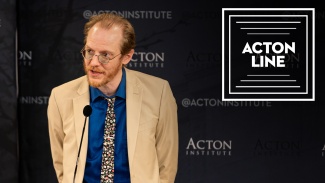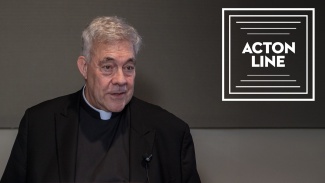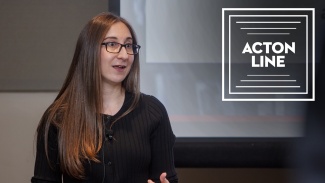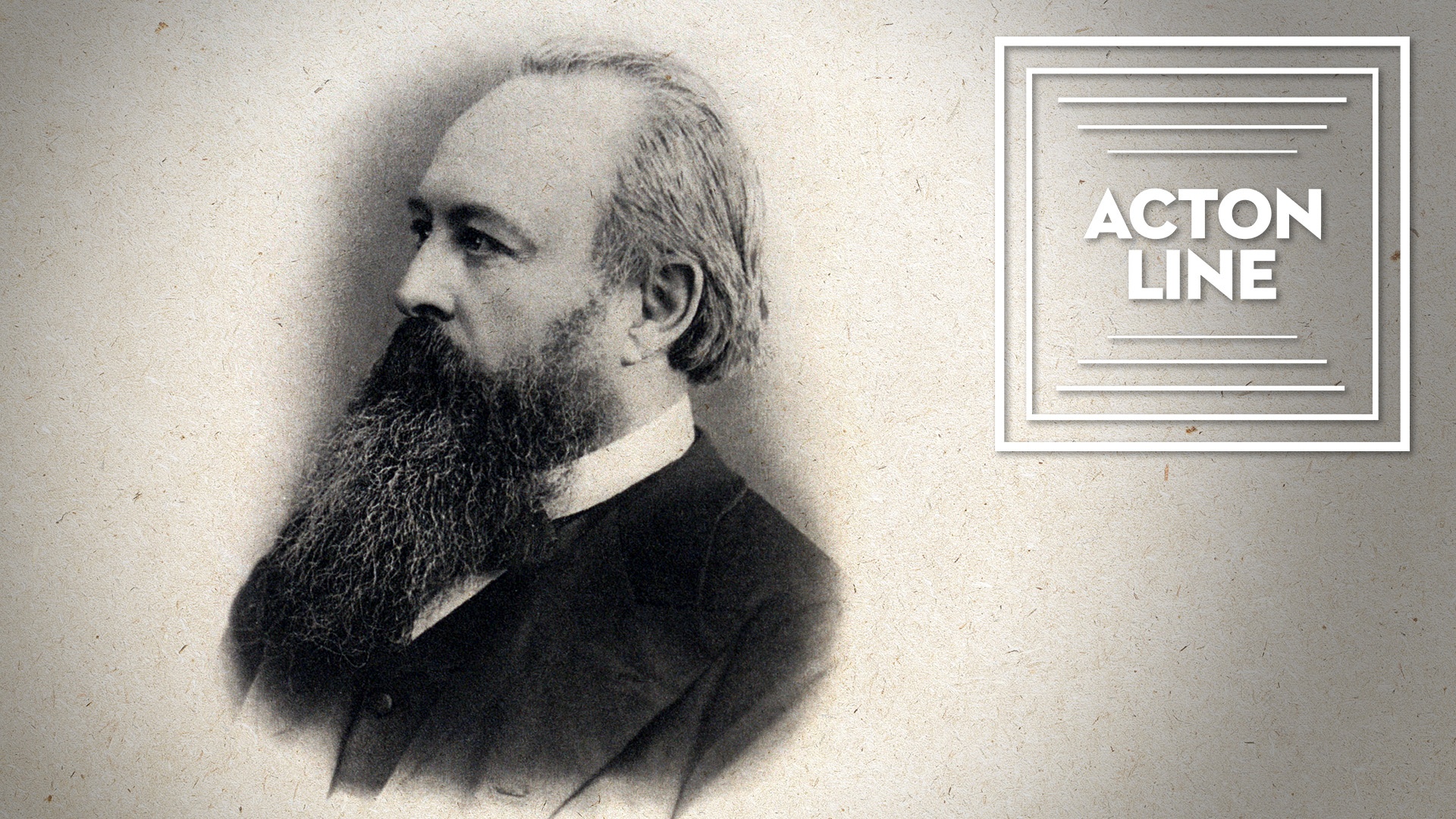
Overview
The Acton Institute is named in honor of John Emerich Edward Dalberg-Acton (1834–1902), 1st Baron Acton of Aldenham, a historian of freedom. Known as “the magistrate of history,” Lord Acton was one of the great personalities of the 19th century. Widely considered one of the most learned Englishmen of his time, Lord Acton made the history of liberty his life’s work.
The most notable conclusion of Acton’s work is that political liberty is the essential condition and guardian of religious liberty. He thereby points to the union of faith and liberty, which has been the Acton Institute’s inspiration. In describing the Institute’s purpose, Acton’s president emeritus, Rev. Robert Sirico, has said: “Acton realized that economic freedom is essential to creating an environment in which religious freedom can flourish. But he also knew that the market can function only when people behave morally. So faith and freedom must go hand in hand. As he put it, ‘Liberty is the condition which makes it easy for conscience to govern.’”
So who was Lord Acton?
In this episode, Eric Kohn, Acton’s director of marketing & communications, sits down with Dan Hugger, Acton’s librarian, a research associate, and editor of the book Lord Acton: Historical and Moral Essays, to discuss Lord Acton: his work, his beliefs, his life, and his legacy.
Register Now for Business Matters 2023
Apply Now for Acton University 2023 (Early Bird Pricing)
Lord Acton: Historical and Moral Essays | Dan Hugger
Lord Acton: A Study in Conscience and Politics | Gertrude Himmelfarb
Lord Acton: Historian and Moralist | Samuel Gregg



